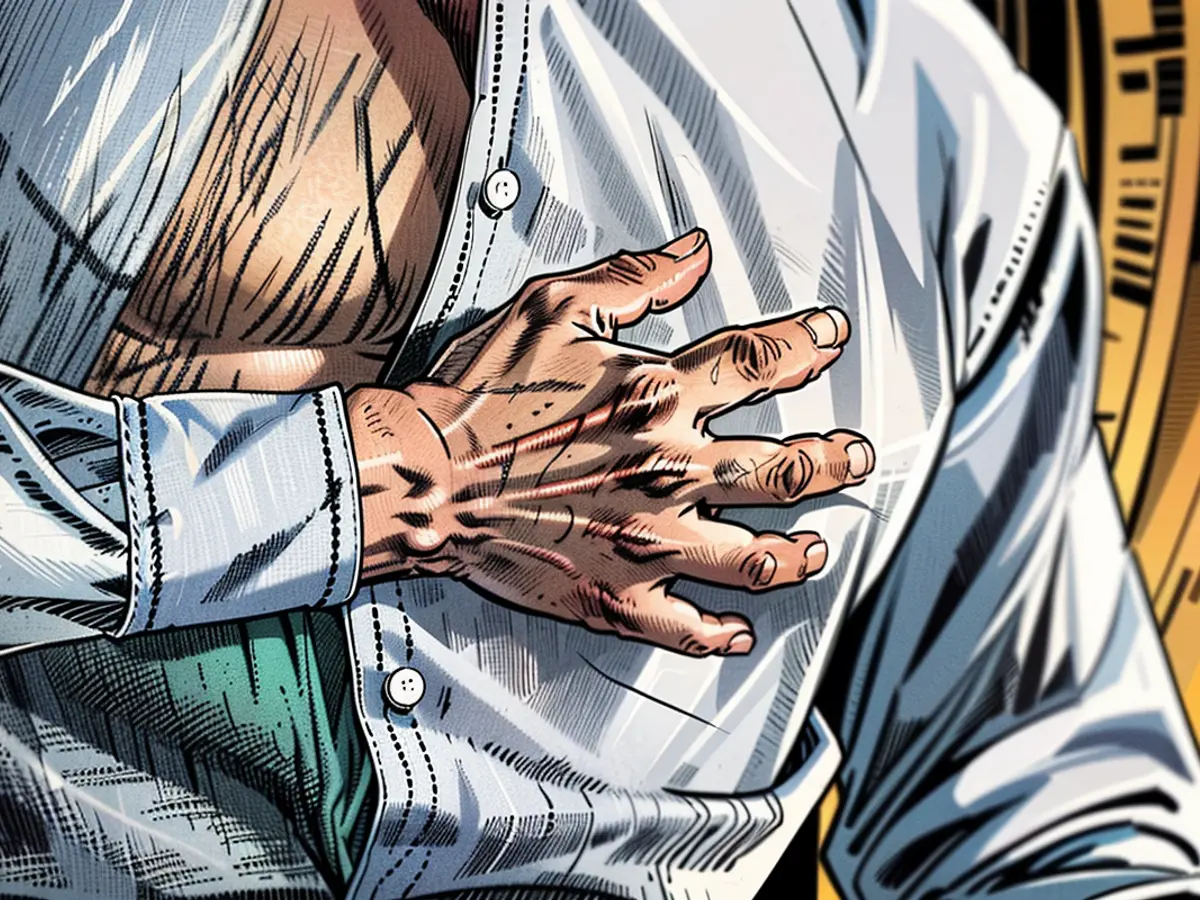Individuals, Females, and a Paternal Container
Following a health scare, architect Peter Munk's outlook on life shifts significantly, as described in Jan Weiler's novel "Munk". But what relationship does his heart attack have with the 13 women Munk has encountered thus far?
Individuals who have been following the serialization of this story in the "Neue Zürcher Zeitung" since 2023 may recall the tale. Initially serialized as a weekly serial novel, the story continued until the spring of 2024, reminding many of the serial novels from the daily newspapers of their past. Titled "Die Summe aller Frauen" in the NZZ, the novel has since been re-titled for its complete publication.
Even with the newly changed title, the underlying message of the story remains the same. After undergoing a serious health crisis, which may have been triggered by the sighting of his latest ex-girlfriend, the 51-year-old Munk is left in the midst of a midlife crisis and finds himself in a sanatorium. It is here, at the picturesque Moenchhof resort, that his psychotherapist tasks him with reflecting on his relationships and listing the most significant individuals in his life.
In a last-ditch attempt to avoid delving into his family history, Munk instead chooses to focus on the women he has shared his heart with, or simply slept with. Organizing the names in chronological order, he begins to critically examine his own relationships and lack of meaningful connections, despite his professional achievements, comfortable lifestyle, and financial prosperity.
The list is not short, yet Munk finds that he is largely devoid of close relationships, as evident by his brief farewell to his cleaning lady before embarking on his sabbatical. Alongside his professional colleagues, Munk embarks on this introspective journey, with his physical ailments rapidly improving after a minor heart procedure.
A corrupted moral compass
The specter of Munk's father looms large throughout his introspection, heavily influencing Munk's early romantic experiences. The architect's first love is ruined due to his father's intervention, ruining the partner of his teenage sweetheart and prompting Munk to abandon the relationship out of loyalty to his family. The father's corruptive influence continues to be felt even after his death, as Munk uncovers damning documents outlining his father's dubious affairs, abortions, and humiliations, as well as his letters of blackmail to authorities, employees, suppliers, and customers.
Faced with this knowledge, Munk becomes determined to erase his father's architectural and human legacy with a fervor, intending to deny him any offspring. This resolve, however, complicates his relationships further, as Munk struggles with his eccentric tastes, a slight predilection for Japanese culture, and a preference for provocatively adventurous women.
As a consequence, his encounters with these women often end either in tragedy or with his own inability to transform them into meaningful relationships. This lack of a satisfying conclusion is particularly evident in the novel's somewhat surprising epilogue, which hints at an author's reluctance to grant his character a happy ending.
Thirteen Hours with Weiler
Despite Munk's frequently morose and drug-addled persona, he inexplicably becomes more endearing as the story unfolds. Weiler manages to balance the somber undertones with moments of humor, such as the fetish classrooms and operating rooms Munk builds for his wealthy clients, or the guessing games he plays with Birgit during their shared time at the Moenchhof Resort.
However, it is Uncle Weiler himself who truly shines. Reading the audiobook edition, his manner evokes a subtle irony, echoing the urgency and vehemence of Munk's reflections while highlighting his self-pity and narrow-mindedness. It is a heartfelt and endearing performance, imbuing the nearly 380-page story with the richness of over 12 hours of audio.
Upon completion of the audiobook, one cannot help but wish for a more sympathetic understanding of psychotherapy to be extended to the troubled architect, Munk. One cannot help but hope that he learns to find love, but perhaps in a more canine form rather than from a human partner.
In the introspective journey at the sanatorium, Munk chooses to reflect on his romantic encounters as a way to avoid delving into his family history. reviewing these relationships, he finds that many of them have ended in tragedy or his inability to form meaningful connections.
Following the publication of "Die Summe aller Frauen," readers are left wondering if Munk's character will find love, despite his flaws and complex past. reviews of the novel suggest that the author's reluctance to give Munk a happy ending adds to the novel's impact and intensity.








